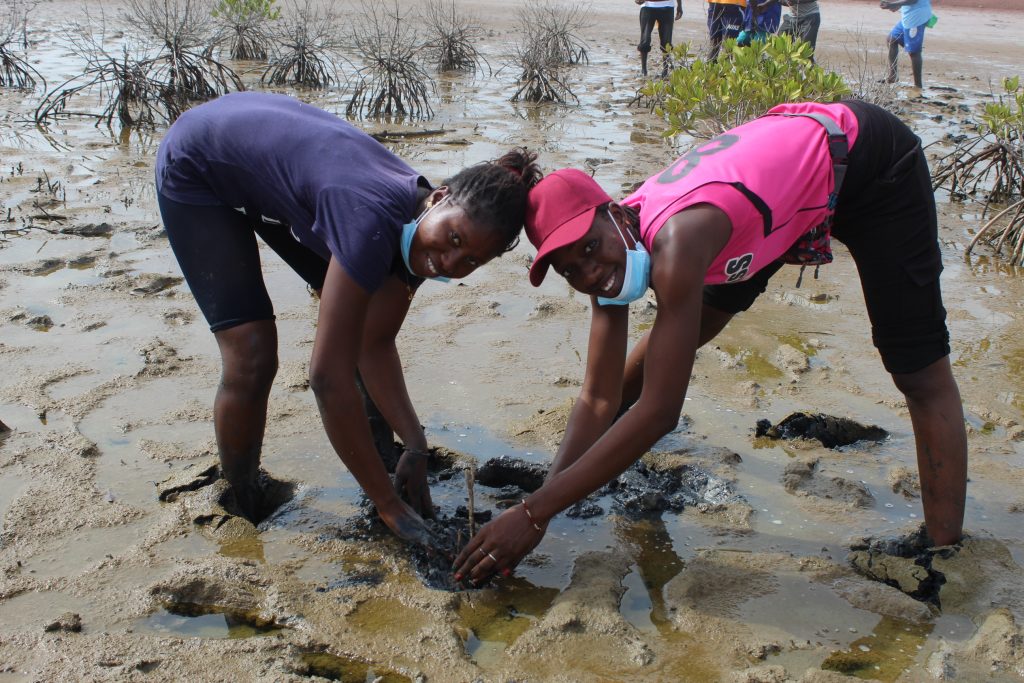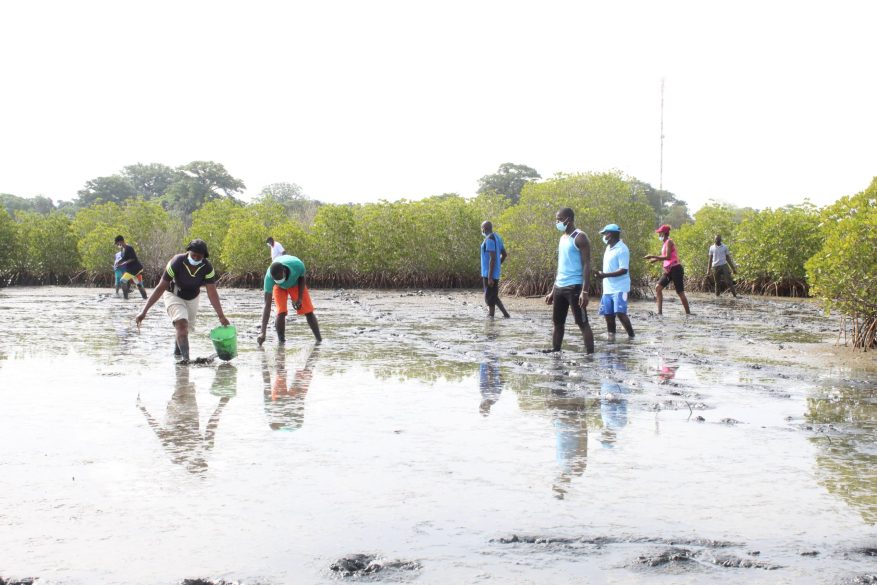Mangroves are vitally important ecosystems.
They are huge carbon sinks and can sequester up to four times more carbon than rainforests per hectare; their dense roots help bind and build soils; their above-ground roots slow down water flows and encourage sediment deposits that reduce coastal erosion and floods. They are a hub of biodiversity providing homes and breeding grounds for an array of marine, land and bird life. Millions of people live in or near mangrove regions, and rely on them for food, and income.
But these complex and essential ecosystems are under threat. The UN estimates that a quarter of mangroves have been lost in the past 40 years, with devasting impacts. As well as biodiversity loss, the decline in mangroves has led to impoverished livelihoods, lower economic growth, declining human security, and a poorer quality of life for local communities and coastal populations.
Self Help Africa, through local partners in Senegal’s Casamance region, are leading efforts to achieve integrated protection of the fragile diversity and ecosystems of mangrove forests in West Africa and their enhanced resilience to climate change. As part of the initiative, thousands of trees were planted by local communities in the Diegoune region of Sengal, on the Casamance delta.

The Casamance region is known for its biodiversity and forests, and is severely threatened by complex development factors and by climate change. As well as planting trees, Self Help Africa are supporting community-led initiatives to protect and take responsibility the forests and surrounding environment, and build ecological livelihood opportunities for local people.
Be part of our efforts to plant many more trees in Senegal and beyond. Donate just €10 to our One Million Trees campaign, and we’ll plant a native tree in Ireland and 10 trees in Africa.

